Bloomington’s Switchyard Park to get night patrols by private security firm
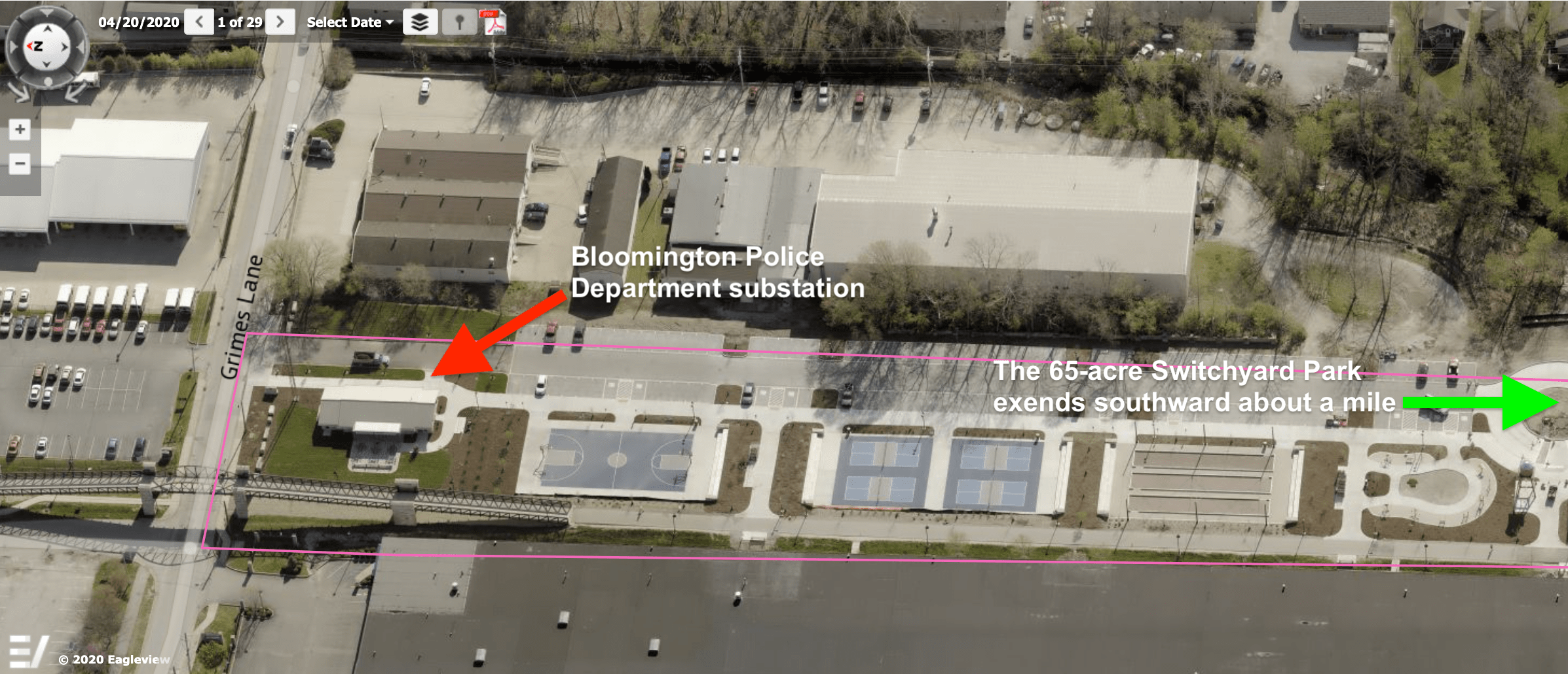
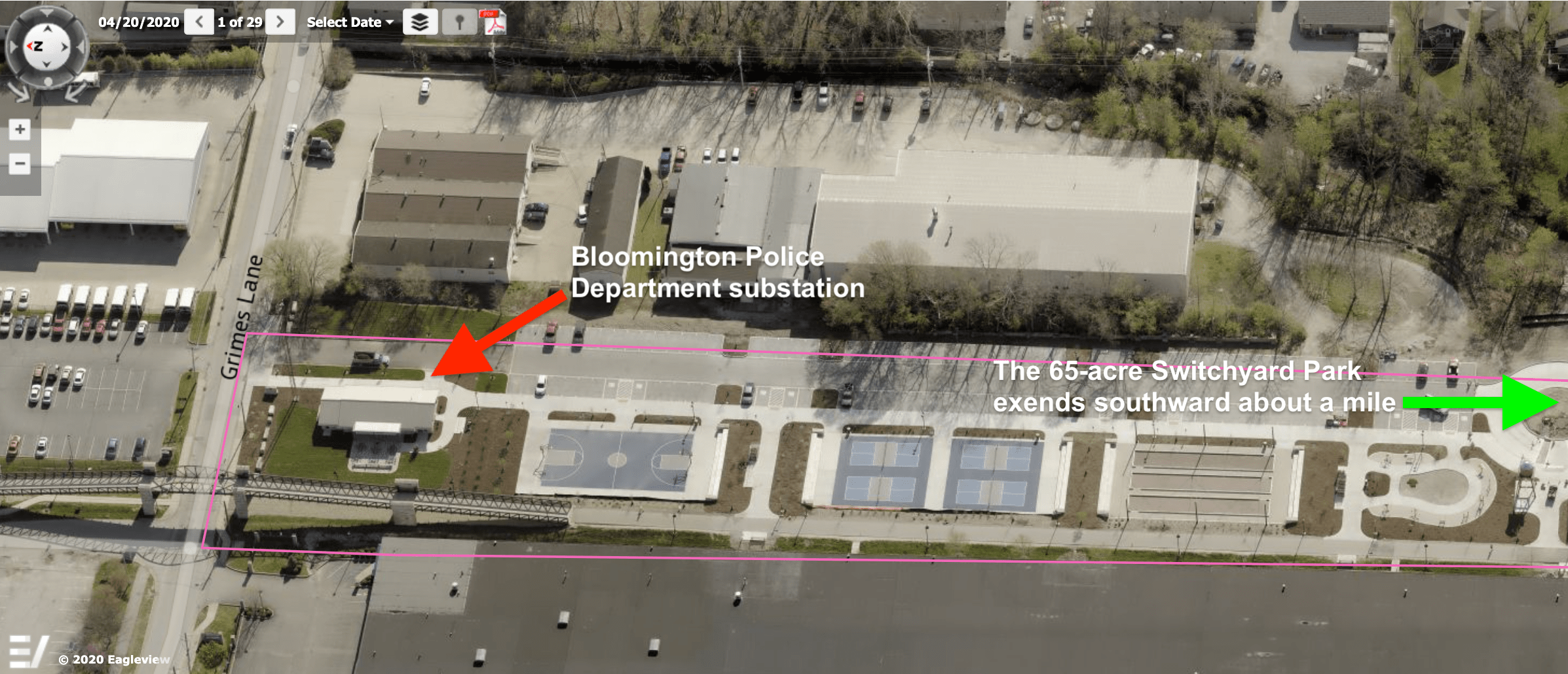
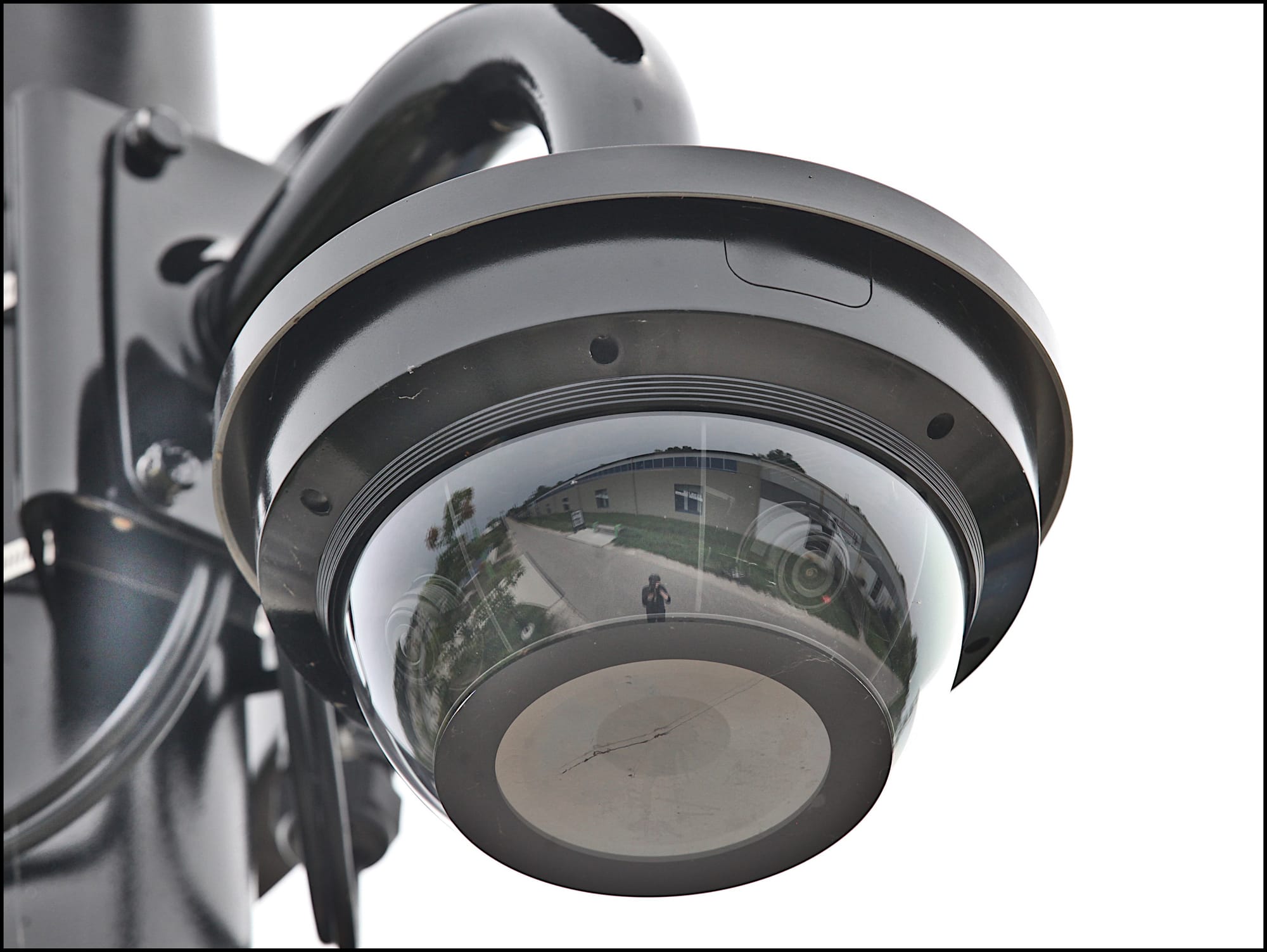
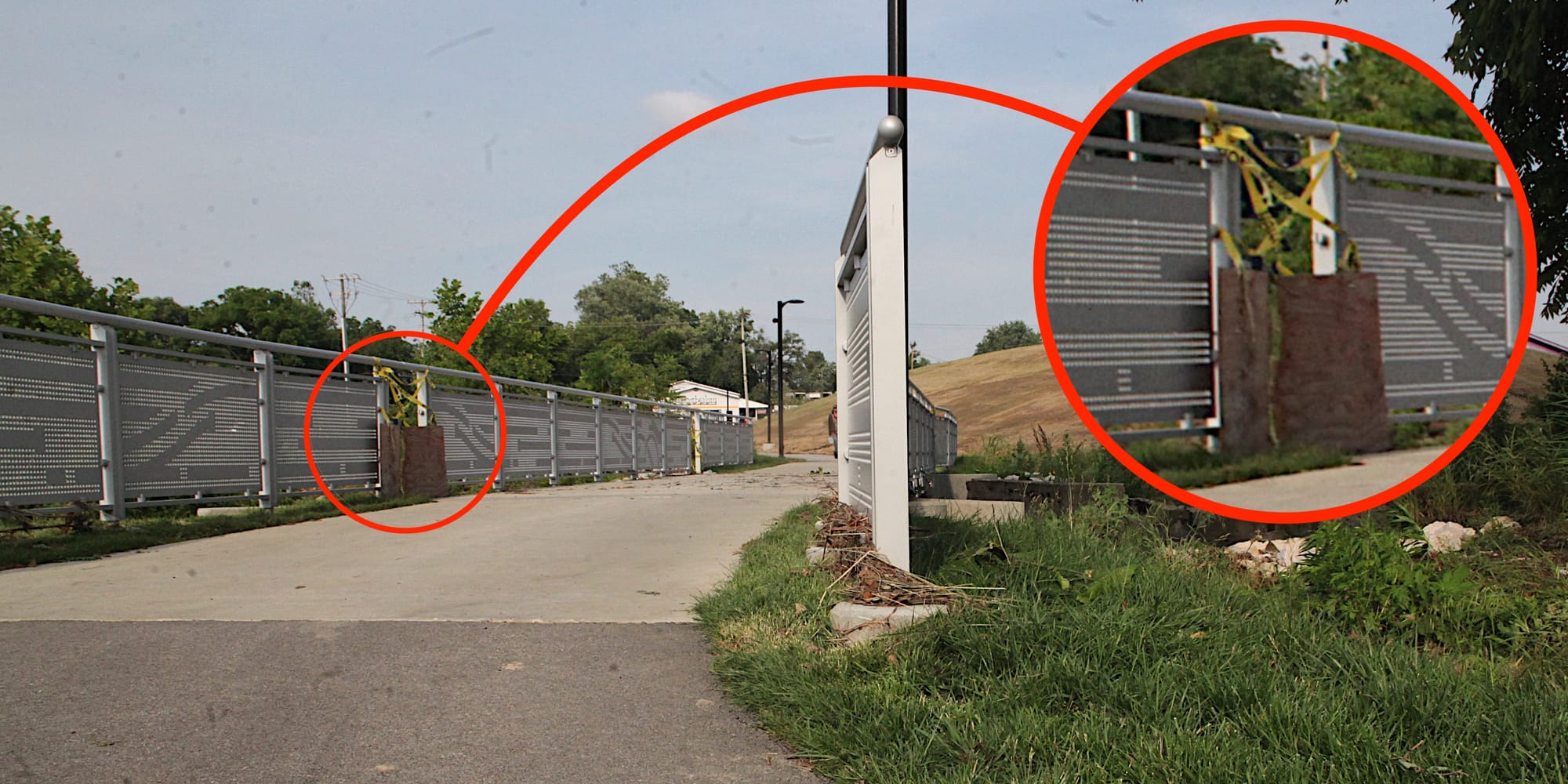
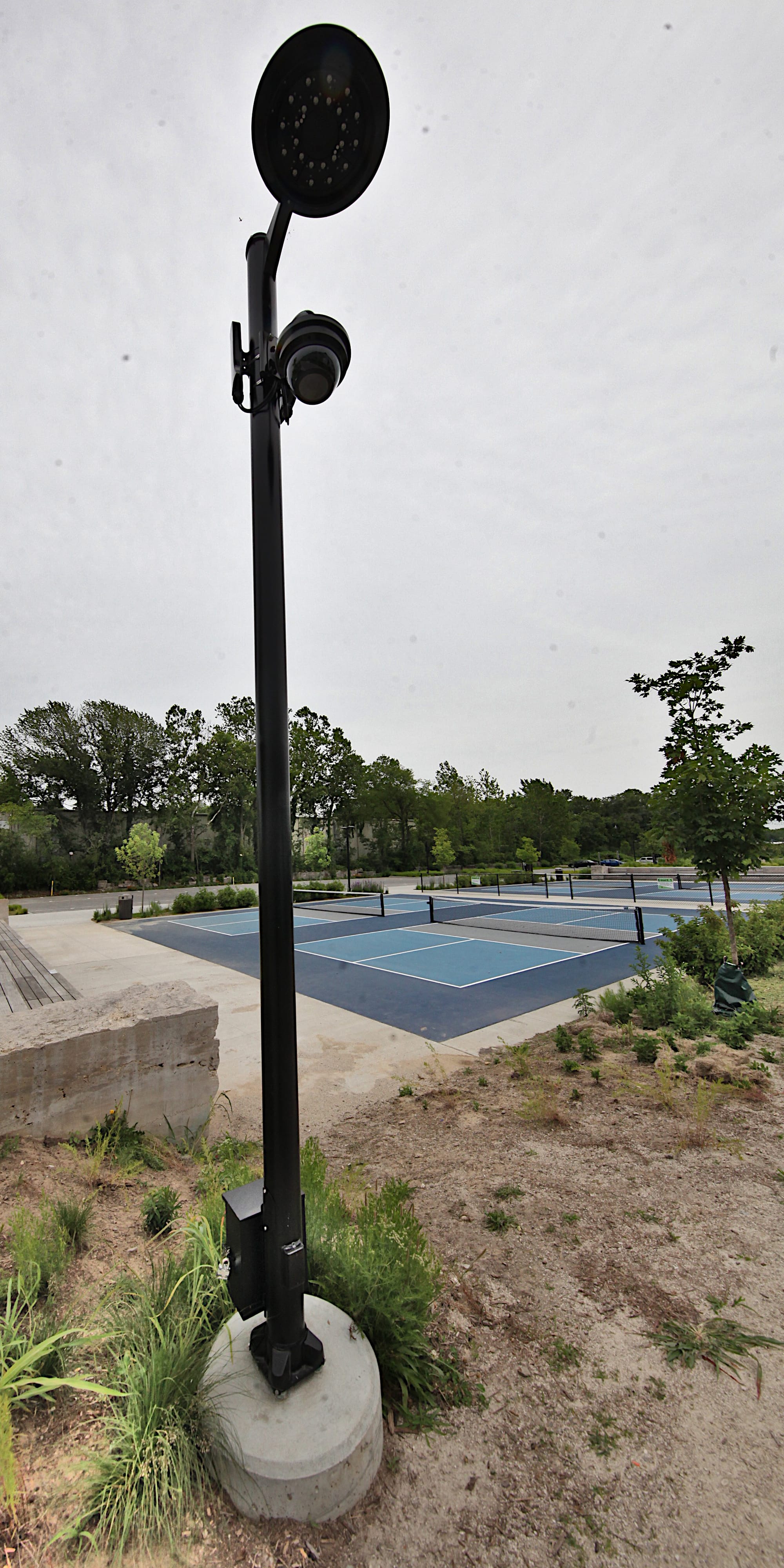
Two-person unarmed teams from Marshall Security will now be performing patrols in Bloomington’s 65-acre Switchyard Park from 11 p.m. to 7 a.m. every day of the week.
A contract with the private security firm was approved by Bloomington’s board of park commissioners at its regular Wednesday meeting.
The hourly rate per security officer is $16.50. The initial contract calls for a $60,588 limit on invoiced expenses from Marshall.
Switchyard Park general manager Hsiung Marler told the four-member board of park commissioners that the security officers from Marshall would be wearing body cameras. They’ll be driving small vehicles suitable for travel on the B-Line Trail and the paths inside the park.
There are some spots inside the park where the Marshall employees will need to get out of the vehicle to make their required rounds, Marler said.
According to parks and recreation staff, the reasons for putting an increased security presence in the park include an increase in after-hours vandalism and substance use, and overnight camping.
Also part of the mix, according to Bloomington’s director of parks and recreation, Paula McDevitt, is the fact that this year is the new park’s first season of full operations. Last year would have counted a partial year anyway, even without the impact of the COVID-19 pandemic.
The issues with increased vandalism “bubbled to the top pretty quickly,” according to McDevitt.
Switchyard Park includes a new police substation, at its north end, just south of Grimes Lane. Responding to an emailed question from The B Square, police chief Mike Diekhoff indicated that sworn officers work out of that building, but it’s not open to the public.
McDevitt responded to an emailed question from The B Square about why Bloomington police department was not just asked to step up patrols in the park—as an alternative to hiring private security. She put the issue in the context of park patrolling work that parks and recreation staff have done in the past, and the additional demands of the new large park.
“For many years [the city’s parks department] has had a seasonal park patrol position with the responsibility of patrolling all parks/restrooms/picnic shelters,” McDevitt wrote. She continued, “With the addition of Switchyard Park, with increased vandalism this year, it is necessary to have an ongoing presence in this park.”
Police will be called on to deal with any criminal activity, McDevitt indicated: “We will continue, as we always have, to contact BPD for any situations which move beyond park patrol responsibilities.”
The security cameras that have been installed on the light poles inside Switchyard Park are not much of a deterrent to vandalism, according to Switchyard general manager Hsiung Marler. He told park commissioners: “The cameras themselves do not seem to be a deterrent to many of the actions we’ve seen.”
Marler continued, “We have video of somebody knocking over a light pole, lighting a trashcan on fire, of similar incidents. Having a camera is not a deterrent.”
Marler added, “Even when we do have good video, and we take it to the police, [sometimes] there’s not much they can do, even with that video.”
The funding for the contract with Marshall Security is described in the board’s meeting information packet as drawing on CARES Act funding (Coronavirus Aid, Relief, and Economic Security).
Responding to an emailed question from The B Square, McDevitt said CARES Act funding can be used for public safety, which covers the contract with Marshall Security.
In other Switchyard Park business on Wednesday, the board of park commissioners approved a contract for $8,900 with Jerico Metals to fabricate panels for three bridges inside the park. The work includes the bridge on the east side of the park that leads to the parking area off Walnut Street near the old Night Moves location.
The panels along the railings, where the expansion joints were made, were removed, according to a staff memo, because park patrons were bending and breaking them.
As a stop-gap measure, the city has bolted plywood over the open areas. The plywood, too, has been subjected to the same kind of damage as the original metal panels.
Jerico, which built and installed the original bridge metalwork, is supposed to fabricate new panels that will allow them to be “stably installed.”




Comments ()